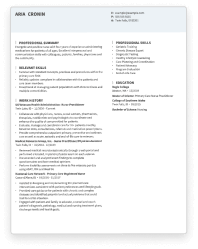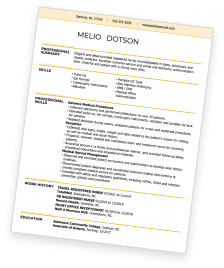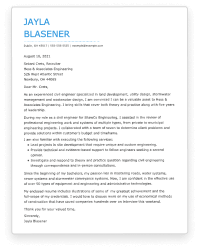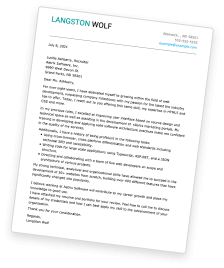Tow Truck Driver Resume: Overview
As a tow truck driver, you are the frontline responder in roadside assistance and vehicle recovery operations. You navigate challenging situations, manage the safe transport of vehicles, and provide invaluable help to motorists in distress.
Your duties span a wide range of activities, including driving to the location of the breakdown or accident, securely attaching and towing vehicles, performing minor repairs on the roadside, and ensuring the safety of all involved.
You may find employment opportunities in:
- Automotive Repair Shops
- Towing Companies
- Public Safety Agencies
- Insurance Companies
- Roadside Assistance Providers
Crafting an exceptional resume is the first step towards landing your next job as a tow truck driver.
Our carefully designed templates and impactful resume examples aim to guide you in showcasing your skills, experience, and dedication to excellence in this vital profession!
Tow Truck Driver Resume: Choose A Format
Crafting a tow truck driver resume begins with selecting the appropriate format.
It’s crucial to choose a format that effectively highlights your qualifications in a compelling way, ensuring you stand out from other applicants.
There are three main types of resume formats that tow truck drivers can consider:
Chronological Resumes for Tow Truck Drivers
The chronological resume format is highly recommended and popular, focusing primarily on the applicant’s relevant work experience.
A tow truck driver would list their work history in the experience section, detailing past positions related to towing and roadside assistance.
Each entry should provide a comprehensive description of responsibilities and achievements, along with the job title, employer’s name, location, and dates of employment.
Bullet points detailing responsibilities and achievements should feature strong action verbs and quantifiable results to provide context and demonstrate your impact on previous roles.
Chronological resumes are also well-suited for Applicant Tracking Systems (ATS), increasing your chances of making it through initial screenings.
Functional Resumes for Tow Truck Drivers
Functional resumes highlight an applicant’s skills rather than their work history, making them suitable for candidates with less relevant experience.
For instance, a newcomer to the towing industry might choose a functional format to focus on skills acquired through related training or in different but relevant roles.
While functional resumes can effectively showcase specific skills, they are generally less favored by employers due to their lack of focus on direct work experience and may not perform well with most ATS.
Combination Resumes for Tow Truck Drivers
A combination resume blends the chronological and functional formats, giving equal weight to both skills and experience.
This approach is beneficial for tow truck drivers looking to highlight both their technical skills and their work history.
Candidates might opt for a combination format when they have a mix of relevant skills and some direct experience, allowing them to present a well-rounded view of their capabilities.
Choosing a Resume Format
Selecting the right resume format is a crucial step in the resume-writing process.
The chronological format is generally recommended, especially if you have a solid work history in towing or related fields.
If your experience is more varied or if you’re new to the field, consider how you can leverage your past roles to demonstrate transferable skills relevant to tow truck driving, such as problem-solving, mechanical knowledge, or customer service skills.
Even unrelated work experiences can be valuable if they showcase skills that contribute to your effectiveness as a tow truck driver, such as communication, time management, and the ability to work under pressure.
How To Write A Tow Truck Driver Resume
After selecting the best format for your tow truck driver resume, the next steps involve detailing critical sections that constitute the outline of your resume.
These sections are essential to presenting yourself as the ideal candidate for the job.
The five key sections you must include in your resume are:
- Contact Information
- Summary or Objective
- Work History
- Skills
Education
Knowing how to write your resume effectively is important to creating a comprehensive portrayal of your qualifications, setting the stage for your professional advancement in the towing industry.
Contact Information
The contact information section should prominently feature your full name, phone number, professional email address, and your location (city and state).
Including a LinkedIn profile or a link to an online portfolio can also be beneficial, particularly if it showcases your expertise or certifications in towing, mechanical knowledge, or customer service.
Make sure your contact information is at the top of your resume and is formatted to be easily noticeable. While it should catch the eye, ensure it doesn’t detract from the substance of your resume.
An example of how the contact information might look for a tow truck driver is:
John Doe
Houston, TX
john.doe@email.com
555-123-4567
Summary or Objective
Underneath the contact information on your resume, it’s essential to include a profile that introduces who you are to the reader.
This can take the form of either a resume summary or an objective, depending on your experience level and career goals.
A resume summary provides a concise overview of your key skills and experiences, along with your professional objectives. It’s particularly effective for candidates with a substantial work history relevant to the position they’re applying for.
A compelling resume summary for a tow truck driver might read:
“Experienced Tow Truck Driver with over five years of dedicated service in roadside assistance and vehicle recovery. Demonstrated ability to respond swiftly to calls, ensuring customer safety and satisfaction. Proficient in operating a variety of tow vehicles and equipment with a strong emphasis on safety protocols. Committed to maintaining professionalism under pressure and aiming to contribute to efficient operations within a reputable towing company.”
An objective statement, on the other hand, focuses on your career aspirations and enthusiasm for the job, making it suitable for those new to the field or making a career change.
A well-crafted resume objective for a tow truck driver could be:
“Motivated and resourceful individual seeking to launch a career as a Tow Truck Driver. Holds a commercial driver’s license and has completed a professional towing training program. Known for quick thinking, problem-solving skills, and a strong commitment to providing exceptional customer service. Eager to apply knowledge and skills to contribute to the success and reputation of a leading towing service provider.”
Note: Regardless of which option you choose, this section is your chance to incorporate relevant keywords from the job description. Doing so can help your resume pass the Applicant Tracking Systems (ATS) and catch the attention of employers, increasing the likelihood of your resume being thoroughly reviewed.
Work History
The “Work History” section of your tow truck driver resume is vital for demonstrating your relevant experience and qualifications to potential employers.
This section provides a clear picture of your professional journey, emphasizing your capabilities and achievements in roles related to towing and roadside assistance.
Begin with your most recent job and work your way backward, focusing on positions that have a direct connection to the tow truck driver role.
It’s essential to highlight responsibilities and achievements that underscore your suitability for the position you’re targeting.
Employ strong action verbs to describe your duties and accomplishments, and whenever possible, quantify your successes with numbers or percentages.
This approach not only lends credibility to your achievements but also helps differentiate you from other candidates by showcasing the unique value you bring to the table.
Here’s an example of how you might structure the work history section for a tow truck driver resume:
Tow Truck Driver
Quick Response Towing, New Cityland, CA
05/2019 – Present
- Successfully managed over 1,000 towing and roadside assistance calls, maintaining a 99% customer satisfaction rating.
- Implemented a new vehicle inspection routine, reducing on-the-job accidents by 20%.
- Trained 5 new tow truck operators in safety protocols and efficient towing techniques, enhancing team performance.
- Led a team in a high-stakes recovery operation for a multi-vehicle accident, praised for swift action and professionalism.
- Developed strong relationships with local businesses and law enforcement agencies, increasing company contracts by 15%.
This format not only showcases your professional growth and responsibilities but also highlights the tangible impacts of your work, making your resume more compelling to potential employers.
Skills
For the tow truck driver position, it’s essential to dedicate a section of your resume to outline your most pertinent hard and soft skills.
The skills section helps employers quickly understand your capabilities and how they align with the needs of the job.
Consider including both specific technical skills related to towing operations and the soft skills that enable you to perform effectively under various circumstances.
Here are the top hard skills and soft skills you might consider highlighting for a tow truck driver resume:
Top 5 Hard Skills for Tow Truck Driver Resumes
- Vehicle Towing and Recovery: Proficiency in safely towing different types of vehicles, understanding the nuances of various towing equipment, and executing vehicle recovery operations.
- Mechanical Knowledge: Basic to advanced understanding of vehicle mechanics to perform minor repairs or assessments on the roadside.
- Safety Protocols: Strict adherence to safety standards and protocols to ensure the safety of all individuals and vehicles involved in towing operations.
- Navigation and Route Planning: Ability to use GPS and mapping software for efficient route planning to reach destinations quickly and safely.
- Equipment Maintenance: Regular inspection and maintenance of towing equipment to ensure operational readiness and safety.
Top 5 Soft Skills for Tow Truck Driver Resumes
- Customer Service: Excellence in customer service, providing reassurance and clear communication to customers during stressful situations.
- Problem-Solving: Quick thinking and problem-solving skills to assess situations and find solutions under pressure.
- Adaptability: Flexibility to adapt to unexpected situations, such as dealing with hazardous road conditions or difficult recoveries.
- Teamwork: Ability to work collaboratively with law enforcement, emergency services, and team members to ensure efficient and safe towing operations.
- Attention to Detail: Meticulous attention to detail in all aspects of towing and recovery, ensuring that vehicles are secured properly and all procedures are followed precisely.
In your resume, the skills section might be structured as follows:
Skills
- Vehicle Recovery & Towing: Experienced in a wide range of towing scenarios and equipment.
- Mechanical Repairs: Capable of performing basic roadside repairs and vehicle assessments.
- Customer Service: Committed to providing empathetic and efficient service to customers in distress.
- Navigation & Efficient Route Planning: Proficient in GPS and route planning software for a timely response.
- Safety First: Rigorous adherence to safety protocols to prevent accidents and ensure the well-being of all parties involved.
This concise listing not only makes it easy for hiring managers to assess your qualifications at a glance but also highlights your readiness for the challenges of the tow truck driver role.
Education
For a tow truck driver, the education section of your resume should detail your highest level of education, including the institution’s name and location.
If applicable, include your graduation date, relevant coursework, and any honors or certifications you received.
Depending on the job’s requirements and your personal qualifications, you might also choose to list this information in separate sections.
Prioritize based on relevance to the job you’re applying for and the amount of space you have available on your resume.
An education section on a tow truck driver’s resume might look like:
Houston Community College, Houston, TX
Associate of Applied Science in Automotive Technology
While specific educational requirements for tow truck drivers can vary by employer, having a background in automotive technology or a related field can be advantageous. Highlight any education that demonstrates your mechanical knowledge or readiness for the role.
Additional Sections
Including additional sections on your resume can be beneficial if they highlight relevant skills or achievements that don’t fit neatly into the standard categories.
For a tow truck driver, consider adding sections that can enhance your candidacy, such as:
- Certifications: Detail any industry-specific certifications, such as Towing and Recovery Association of America (TRAA) certification, that demonstrate your expertise and commitment to professionalism in towing operations.
- Volunteer Experience: Mention any volunteer work, especially if it’s related to automotive assistance or community service, showing your willingness to help and engage with your community.
- Professional Associations: Membership in professional organizations can indicate your dedication to staying informed about industry standards and networking with peers.
- Awards and Honors: Highlight any recognition you’ve received for your work, such as employee of the month awards or commendations for excellent service.
- Relevant Hobbies: If you have hobbies that demonstrate skills useful in towing and recovery (e.g., mechanical repair projects, off-road driving), including them can provide a fuller picture of your abilities and interests.
Remember, these additional sections should be concise and directly relevant to the tow truck driver position. Including them can help set you apart from other candidates by showcasing a well-rounded and dedicated professional profile.
Top Certifications For Tow Truck Drivers
While tow truck drivers do not have as standardized a certification process as some professions, there are still several certifications that can enhance your qualifications and appeal to potential employers.
These certifications demonstrate a commitment to safety, proficiency, and professionalism in the towing industry.
- WreckMaster Certification: WreckMaster offers a range of certifications for tow truck operators, focusing on safety, efficiency, and the proper techniques for towing and recovery. Levels range from 2/3 (the basic level) up to 8/9 (the most advanced), covering everything from light-duty towing to complex recovery operations.
- Towing and Recovery Association of America (TRAA) Certification: The TRAA provides a National Driver Certification Program that includes Level I (Light-Duty Towing), Level II (Medium/Heavy-Duty Towing), and Level III (Heavy Recovery Specialist). These certifications are recognized across the United States and are often required by employers.
- AAA Roadside Assistance Technician Certification: While not exclusive to tow truck drivers, this certification from AAA is highly regarded in the industry. It covers a range of roadside assistance solutions, including towing, jump-starts, and lockout services, emphasizing safety and customer service.
- State-Specific Certifications: Some states or municipalities may have specific certification or licensing requirements for tow truck operators. These can include passing a written exam, undergoing a criminal background check, and completing a specified amount of training hours. It’s essential to check the requirements in your state or the state where you plan to work.
8 Tips For Writing A Tow Truck Driver Resume
Customize Your Resume: Tailor your resume for each application to match the specific needs and language of the tow truck driver job posting. Highlight experiences and skills that are most relevant to the position.
Use Action Verbs: Start bullet points in your work history with dynamic action verbs that convey your capabilities and achievements. Verbs like “coordinated,” “implemented,” “operated,” or “resolved” can make your resume more compelling.
Quantify Achievements: Whenever possible, quantify your accomplishments with numbers or percentages. For example, mention the number of calls you handled daily or the percentage reduction in response times you achieved.
Incorporate Keywords: Scan the job description for keywords related to towing, customer service, safety protocols, and include these in your resume to improve your chances of passing through Applicant Tracking Systems (ATS) and catching the hiring manager’s eye.
Emphasize Safety: Highlight your commitment to safety standards and protocols. Detail any safety courses completed or awards received for maintaining an excellent safety record.
Customer Service Skills: Given the customer-facing nature of tow truck driving, emphasize your customer service skills, including how you handle stressful situations, communicate with customers, and ensure customer satisfaction.
Mention Specialized Skills: If you have experience with specific types of towing (e.g., heavy-duty, recovery operations) or hold certifications, make sure these are prominently featured on your resume to set you apart from other candidates.
Proofread: An error-free resume is crucial in making a good impression. Check your resume carefully for spelling, grammar, and punctuation errors. A well-presented resume reflects your professionalism and attention to detail, qualities valued in any role, but especially important in one where safety and precision are paramount.


Use Hloom's Resume Builder
Key Takeaways
- The chronological resume format is generally preferred for tow truck drivers to highlight relevant work experience clearly and effectively.
- Including education and certifications, especially those specific to the towing industry, demonstrate professionalism and dedication to safety and service standards.
- Skills relevant to towing, safety protocols, customer service, and mechanical knowledge should be prominently listed to align with job expectations.
- Ensuring your resume is ATS-friendly by incorporating relevant keywords from the job description helps in making your application more visible and likely to progress.
Use Hloom's Cover Letter Builder














